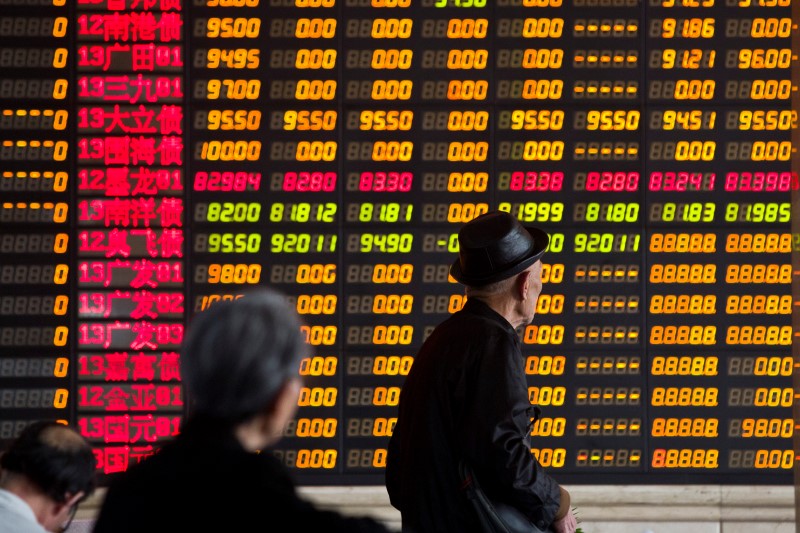Investing.com– Most Asian stocks fell on Monday (NASDAQ:) as fresh fiscal stimulus from China largely underwhelmed, while data over the weekend showed deflation in the country remained in play.
Regional markets brushed off a strong lead-in from Wall Street, which rose on Friday and remained at record highs amid persistent optimism over a Donald Trump presidency.
U.S. stock index futures rose in Asian trade, with focus turning to upcoming inflation data and a slew of Federal Reserve speakers this week.
Chinese stocks dip as fiscal stimulus underwhelms
China’s and indexes fell 0.6% and 0.2%, respectively, while Hong Kong’s index slid 2.4% and was the worst performer in Asian markets.
Investors were mostly underwhelmed by China’s National People’s Congress announcing about 12 trillion yuan ($1.6 trillion) in a debt swap program to improve the finances of local governments.
But a lack of direct fiscal stimulus and targeted measures to improve the housing market and personal consumption left investors wanting, especially as data over the weekend showed Chinese deflation persisted in October.
Chinese inflation grew at a slower pace last month, while inflation shrank for a 25th consecutive month.
Analysts at ANZ said the lack of direct stimulus was likely to accommodate any potential headwinds from a change in U.S. administration, after Trump’s victory. Trump has vowed to impose steep trade tariffs on China, which bodes poorly for the country.
This notion had also weighed on Chinese markets over the past week.
Japanese stocks pressured by BOJ rate hike uncertainty
Japan’s and indexes fell about 0.3% each, weighed by uncertainty over interest rates after the summary of opinions of the Bank of Japan’s October meeting showed policymakers split over when to hike interest rates.
The BOJ had kept rates steady in October after hiking them twice earlier this year, as the bank saw a virtuous cycle of higher wages and inflation.
But the bank’s plans for more rate hikes were clouded by heightened political uncertainty, after a coalition led by Japan’s ruling Liberal Democratic Party lost its parliamentary majority.
Still, Governor Kazuo Ueda signaled at the October meeting that interest rates were still set to rise eventually.
Broader Asian markets retreated as weakness in China spilled over. Australia’s fell 0.5%, as the country’s exposure to China weighed.
South Korea’s fell 0.9%, weighed by losses in technology stocks.
Futures for India’s index pointed to a flat open, as the index languished near three-month lows. Indian stocks were walloped by heavy foreign capital outflows over the past month.
Indian data is due on Tuesday.
Read the full article here


